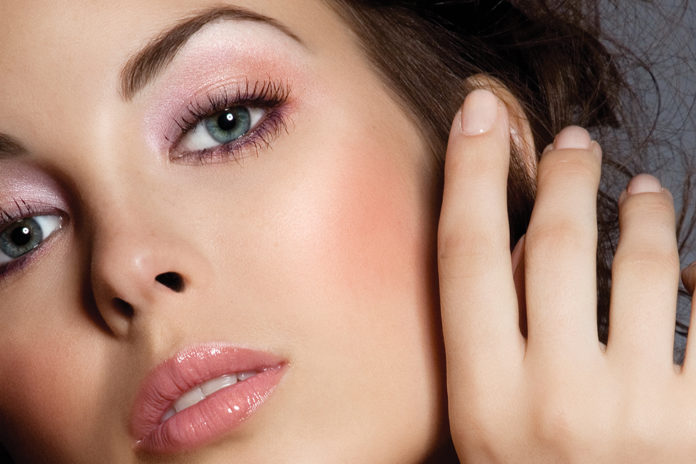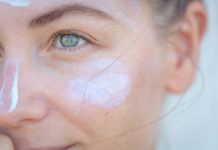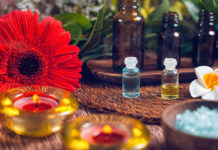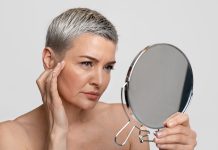
Feeling dull, dry and overdone? We cover the bases on what to stick with, what to change up and what you can do to get a glowing, healthy complexion. • by lena grady
Cassandra had tried everything. While treating rough, dry spots on her cheeks to acne break outs along her jawline, over the years the 35-year-old marketing consultant bought countless creams and serums aimed at solving her skin care woes, only to be left with more irritation each time. Stories like Cassandra’s are increasingly common, says Dana Lerman, a Toronto-based naturopathic doctor.
“The skin is the largest organ in the body,” she says. “It is also the organ that is exposed to and easily affected by the external world.” To begin to remedy your skin and establish the appropriate regime, Lerman offers up some basic advice. First, don’t strip your skin of its natural oils. “Over-washing and over-exfoliating is one of the easiest ways to imbalance our skin. Even using medicated soaps and cleansers too readily will force your skin to become dependant on them for its cleansing and repair, which affects pH balance and the skin’s natural defenses,” she explains. She suggests exfoliating once a week with a coarse cornmeal mask to gently remove dead skin.
Oils are key — coconut, sunflower, olive, almond and avocado, help increase suppleness and provide nutrients and vitamins. Also try natural, gentle masks using ingredients such as calendula, rose and soothing clay.
For all you former sun worshippers suffering from skin damage, Lerman has some solutions on future prevention and treatment. Whenever possible, she recommends covering up and staying in the shade during peak hours of sun exposure. Also, look for the most natural or organic sunscreen possible — many naturopaths recommend a physical sunscreen containing zinc or titanium dioxide to block UVA and UVB rays. “Ultraviolet radiation from the sun, air pollution and any number of other irritants dehydrate skin and invites further damage from free radicals, the unstable molecules that attack the structure of cell membranes,” says Dr. Linda Miles, doctor of Oriental medicine, holistic practitioner and innovator of natural personal care products. “The results are fine lines, wrinkles, and age spots.”
Consider supplements like a multi-B vitamin, vitamin C and vitamin E, along with amino acids such as L-proline and L-cysteine, which support healthy skin structure. Cysteine is another option (try 500 mg with vitamin C, twice daily). It is a sulphur-containing amino acid that’s an important antioxidant and is considered an antiaging nutrient. Herbs such as comfrey, calendula and rose can also help decrease skin’s discolouration.
If you’re suffering from reactive skin conditions such as acne, rosacea or eczema, take a look at your diet. “Once we have identified which food the person is reacting to, within a few months of not consuming the allergen the skin clears up,” explains Lerman. In general, when you eat nourishing foods, if your digestive system is working properly and you are eliminating toxins effectively, your skin will be healthy too. Nosh on skin-healers like berries, orange and green vegetables, mango, papaya, root vegetables, nuts and seeds that contain vitamin C, vitamin A, vitamin E and zinc. For acne sufferers specifically, to heal break outs, Lerman suggests trying burdock root, red clover buds, dandelion root, calendula and comfrey root. Also look for skin repairing supplements like vitamins B5, vitamin C, beta carotene and zinc.
Maturing skin requires greater care. “There is often a tendency to dryness and decreased suppleness to the skin as we age,” says Lerman. Miles adds, “With age, the body’s production of hyaluronic acid (HA) decreases. Deeply moisturizing HA creams lock moisture in, helping to soften and smooth fine lines and wrinkles for radiant, younger-looking skin.” Avoid excess exposure to sun, smoking, alcohol consumption as well as processed and fried foods. Increase your intake of flax oil or freshwater fish and add turmeric to your cooking oils as a general antioxidant, anti-inflammatory and skin enhancer. Also, try taking 500 to 1,000 mg of evening primrose oil daily to help keep skin balanced during menopausal changes.













